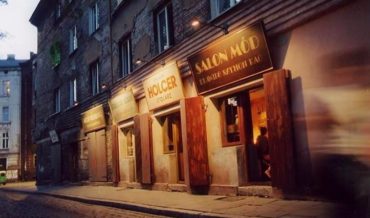Janowa Wola is a former village that stretched between Wola Duchacka, Łagiewniki and Zabłocie, which today belong to Krakow. The village was developing very well, but it was completely destroyed during the Swedish war in 1655-1657. After the first partition of Poland in 1772, Janowa Wola was under Austrian rule. After 1776, a circular commissioner moved from Ludwinów, a customs house was established, and a large settlement grew up around it, which began to be called Podgórze. During the Nazi occupation, there was a ghetto in this area and a well-known Jewish poet and singer, Mordechaj Gebirtig, lived there for a while. He was murdered here by the Germans.
Suggested
Suggested contents and articles.
Suggested Contents
Formerly, the Vistula River was the border of the city from the south. The exit from the city in this very important trade direction was possible thanks to the Wielicki Bridge. Unfortunately, it was abolished in 1775 by a flood. Later it was rebuilt as floating. In 1501 the city
- Knowledge Base
- March 22, 2021
The Podgórski Bridge is a non-existent bridge built in the years 1844-1850 at the end of today’s Mostowa and K. Brodzińskiego Streets in Krakow. The bridge was designed by Eng. Kutscher. It was a wood and stone structure on four pillars. During its construction, a steam engine was used, which
- Knowledge Base
- March 18, 2021
A district of Krakow lying on the right bank of the Vistula. As a result of the First Partition of Poland in 1772, the Austrians took the entirety of Lesser Poland to the Vistula River, and Krakow became a border city. The area of today’s Podgórze also includes former villages
- Knowledge Base, Places to visit
- February 9, 2021
Contents1 Jewish Quarter Krakow1.1 Kazimierz in recent years2 Synagogues in Kazimierz3 Nightlife in Kazimierz History of Kazimierz dates back to 1335 when Polish King Casimir III the Great declared that on a small island on the Vistula river a new town was to be located. It was supposed to protect the southern
- Places to visit
- October 18, 2016
Comments
All comments.
Comments
